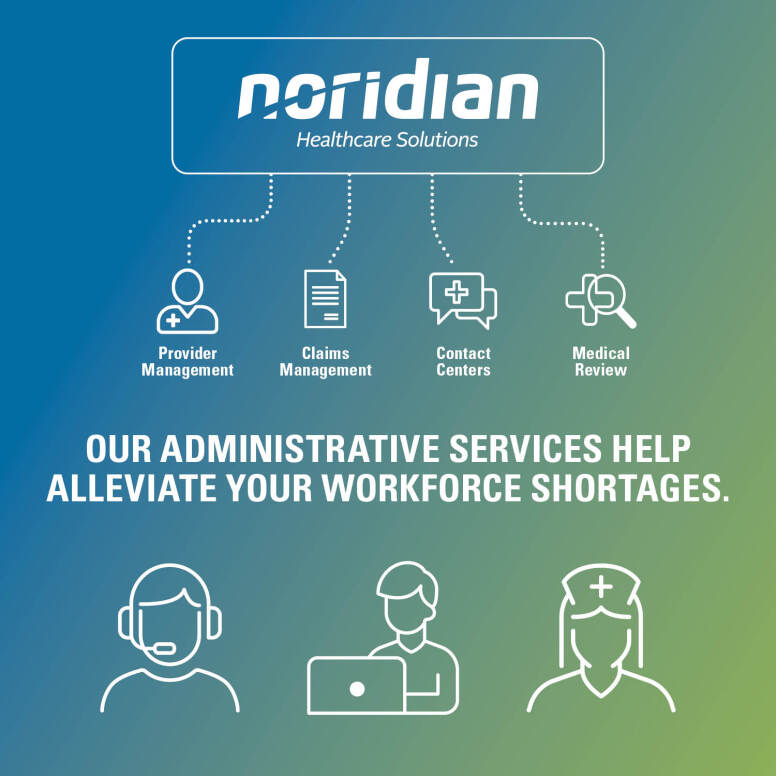Workforce Shortages Extend Beyond Direct Care to Health Plans
*This article was originally published in HealthLeaders: Workforce Shortages Extend Beyond Direct Care to Health Plans | HealthLeaders Media
By: Jennie ML Ossentjuk
The worry about workforce shortages is a constant companion for health care leaders.
It’s not merely a front-line caregiver predicament; the consequences are extensive, impacting nearly every facet of health care.
However, it’s not purely a story of doom and gloom. Finding creative ways to address workforce shortages is also an opportunity for positive change.
It Starts With Direct Care But Extends to the Back Office
The statistics are stark—by 2026, the U.S. health care system is projected to grapple with a shortage of approximately 3.2 million direct care professionals. The country is currently experiencing a nursing exodus—the largest in the last 40 years. Physician shortages are prevalent across specialties, but especially in primary care. Obstetric care is all but disappearing in rural America, leaving two million women of childbearing age without those services. Behavioral health professional shortages plague over half the states in the nation.
Understandably, the existing narrative primarily focuses on care delivery. But that’s not all there is to the workforce shortage issue. Looking into the back office, staffing challenges also threaten the efficacy of private health plans and public health programs.
The consequences are multifaceted, affecting health outcomes, quality scores, access to care and compliance with State and Federal regulations.
Equity and Social Determinants of Health (SDOH):
The repercussions of workforce shortages are not uniform across communities. At-risk communities and rural America bear a disproportionate burden, exacerbating disparities in health equity. The ability for health plans to establish high-performing networks of providers in these geographies, coupled with challenges in attracting and retaining internal clinical resources, negatively impacts their ability to ensure appropriate and timely care for their members.
Challenges Faced by Understaffed Health Plans:
In the world of health plans, the staffing crunch equates to stretching a rubber band to its limit—there’s little or no capacity to focus on implementing robust and innovative programs. It also limits talented employees to unfulfilling work as core administrative functions must take priority. This makes it challenging to stay competitive and keep pace with evolving health care models that could increase member retention, improve profitability, and create greater satisfaction for its provider and employer stakeholders.

Outsourcing is the Answer
Clearly, the complexity of health care requires innovative solutions. Outsourcing administrative services frees up organizations to reallocate existing resources in more innovative pursuits.
In this landscape, one company stands out, not just for its capabilities but for its commitment to relationships and delivering value.
Noridian Healthcare Solutions helps health plans focus on their core businesses by taking over time-consuming yet essential administrative functions. Noridian provides a pool of over 2,000 employees, with over 400 in clinical roles such as Medical Directors, R.N.s and other certified clinicians. Hundreds of others lend their expertise to provider management, customer service, program integrity, utilization management and claims management, with a keen focus on operational excellence and compliance with federal and state regulatory requirements.
For nearly 60 years, the company has administered Medicare to a large portion of the country since the program’s inception. Over time, they’ve adapted their services to include commercial health plans and other public programs such as Veterans Health Administration and Medicaid.
Due to its Medicare experience, Noridian works with the largest network of rural providers in the nation and understands the unique challenges they face every day.
Outsourcing Changes the Narrative
As health care continues to evolve, the workforce shortage narrative need not be one of despair. Instead, it serves as a rallying call for innovation, adaptation and strategic partnerships. With Noridian Healthcare Solutions as a trusted partner, the path to a healthier tomorrow becomes not just conceivable but achievable.
Contact Noridian to learn more about how we can help your health plan.
About the author:
Jennie ML Ossentjuk is the market lead for health plan payers at Noridian Healthcare Solutions, a company dedicated to providing effective and efficient administration solutions for health care programs. As market lead, she performs health care market forecasting and develops strategic plans that promote growth for Noridian and its customers. Ossentjuk builds and maintains long-lasting, strong relationships with key customers and influencers, including executive teams, external stakeholders and operating leaders. She has more than 30 years of health care experience across diverse sectors, including leadership roles at healthcare technology and management organizations.
Ossentjuk strives to stay curious and adventurous, as those values are key to growth. She lives by the motto “What got you here won’t get you there,” which drives her to discover and execute the best solution possible for her customers.
In previous positions, Ossentjuk worked with large provider organizations as well as commercial and government-sponsored health plans across the country. She has a Bachelor of Arts in Psychology, a Master of Science in Health Care Management, and is a certified Project Management Professional (PMP). She currently resides in Orange County, New York where she serves on several non-profit boards in the community.